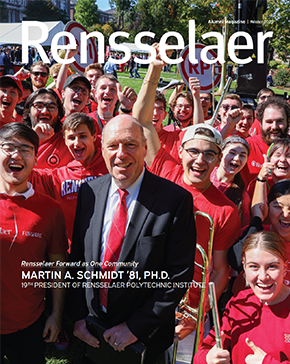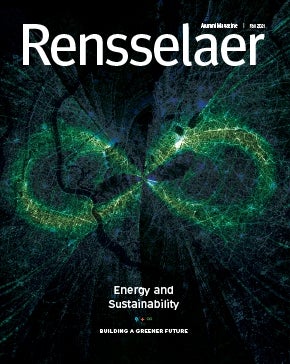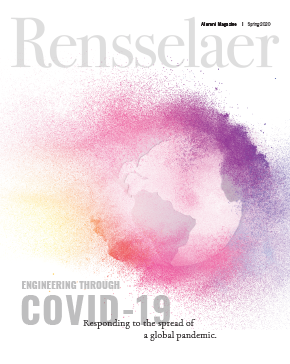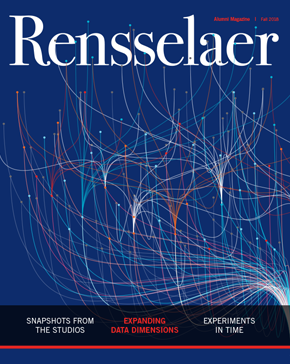
Nuclear Engineering and Engineering Physics
DOE Awards $1.8 Million for Solar Power Systems Research
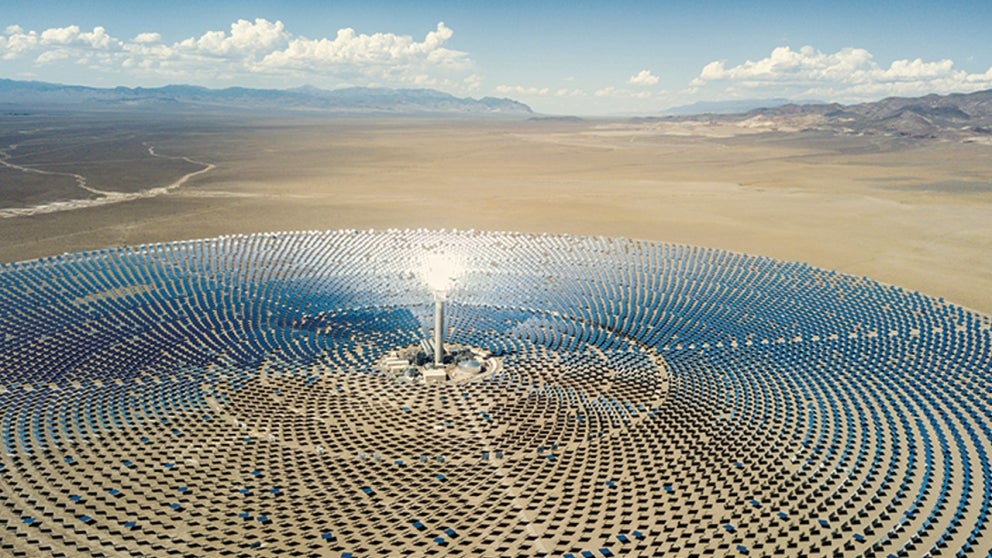
Li (Emily) Liu, associate professor of nuclear engineering and engineering physics, has been selected by the U.S. Department of Energy Solar Energy Technologies Office to receive a $1.8 million award to study high-temperature molten-salt properties and corrosion mechanisms. This award is part of a $72 million funding program to advance concentrating solar power (CSP) research, a power plant technology that could reduce the cost of solar energy.
CSP systems supply solar power on-demand through the use of thermal storage. CSP technologies use mirrors to reflect and concentrate sunlight onto receivers that collect solar energy and convert it to heat. Thermal energy can then be used to produce electricity via a turbine or heat engine driving a generator. Types of CSP technologies include power towers, mirrored dishes, and linear mirrors.
The Generation 3 Concentrating Solar Power Systems (Gen3 CSP) funding program will build on prior research for high-temperature concentrating solar thermal power technologies. Projects will focus on developing components and integrated assembly designs with thermal energy storage that can reach high operating temperatures, with a target of at least 700 degrees C, which would boost the efficiency and lower the cost of the electricity.
Molten salt is used both as a heat transfer fluid and as a thermal energy storage medium in a power tower CSP system, according to Liu. “The molten salt mixture is both non-toxic and inert, and it can deploy inexpensive and scalable thermal storage, thereby enabling cost-effective 24-hour electricity generation using only solar energy,” she says.
However, molten salts, which contain impurities such as oxygen and moisture, can be very corrosive at high temperatures (550 to 700 degrees C), and can eat away the common alloys used to produce the heat exchangers, piping, and storage vessels in CSP systems.
Liu’s research aims to fill the knowledge gaps in salt properties and gain a fundamental understanding of corrosion mechanisms, which will help guide the selection of salts and containment materials for CSP systems.
“The salt chemistry, as well as its corrosion, must be understood before the system and component design because the material choice may differ with the salt properties identified,” says Liu.
Working with project collaborators Robert Hull, the Henry Burlage Jr. Professor of Engineering at Rensselaer, and Professor Jinsuo Zhang from Virginia Tech, Liu will use state-of-the-art and new technologies to develop in-situ corrosion kinetics and salt property measurements.
The results of this research will lead to new and innovative approaches in the associated technologies, and insights into the molten salt and containment material aspect of solar energy, says Liu.
